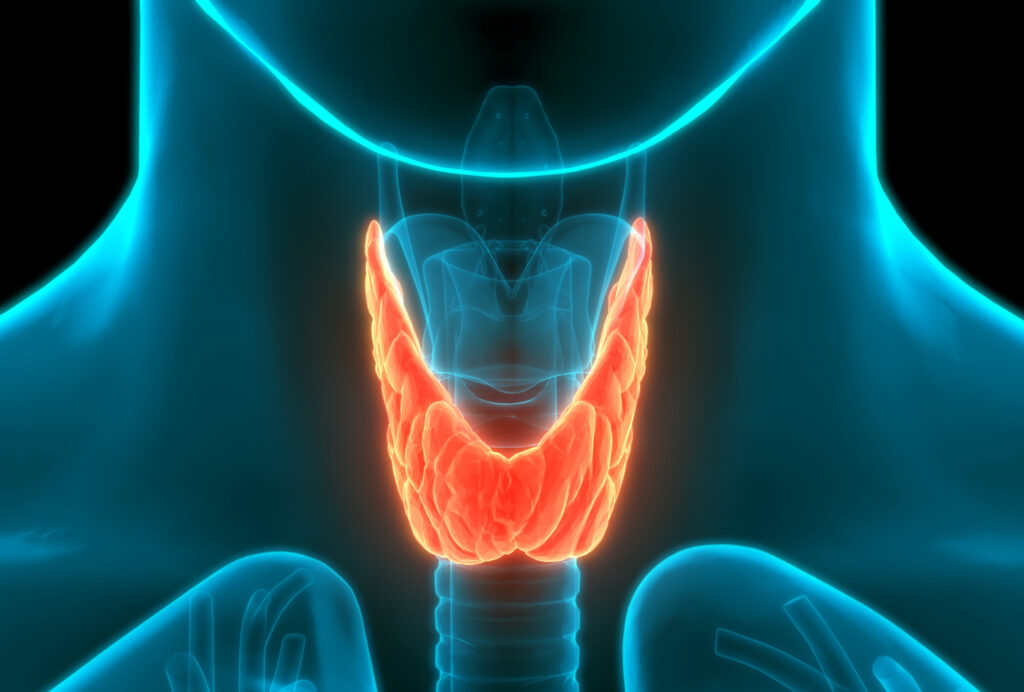
As a critical control factor in the body that regulates normal body homeostasis, the thyroid gland is amongst the most important glands of the body to take care of and ensure normal functioning.
There are, however, several causes, risk factors, and environmental circumstances that cause negative effects on the health and function of the thyroid gland. In the most extreme cases, hypothyroidism (underactive thyroid) or hyperthyroidism (overactive thyroid) can develop.
Other thyroid problems include Grave’s disease, adenomas, and thyroiditis. While there are several treatment options available, the most extreme being thyroid gland removal, several preventive measures can be taken proactively to protect the thyroid and hopefully prevent the need for invasive treatment.
In what follows, we’ll be exploring several causes of thyroid problems pertaining to both under and overactive conditions. Further, we’ll also be providing an outline of available treatment and preventative measures.
Common Causes of Thyroid Dysfunction
While there are many potential causes and risk factors associated with thyroid dysfunction, the following are the five most described causes:
Autoimmune Disorders
Autoimmune disorders can cause several thyroid problems. The most common autoimmune disorder known to affect the thyroid gland is called Hashimoto’s thyroiditis.
In this condition, the immune system attacks the thyroid gland, causing inflammation and overall damage. This ultimately leads to a decrease in the production of thyroid hormones leading to hypothyroidism or underactive thyroid disease.
Another autoimmune disorder known to affect the thyroid is Graves’ disease, which leads to the overproduction of thyroid hormone and hyperthyroidism.
Congenital Defects
Congenital defects also cause thyroid conditions. These defects occur during fetal development and can affect the structure and overall function of the thyroid gland. The result is a cellular structure that is unable to produce sufficient thyroid hormones for human function and development.
If not diagnosed and treated early, congenital hypothyroidism can result in markedly decreased mental development. If treated early, however, congenital hypothyroidism remains one of the most preventable causes of impaired brain development.
Iodine Deficiency
Iodine deficiency is another common cause of thyroid dysfunction. Iodine is a mineral essential for producing essential hormones; however, when there is not enough iodine in the body, the thyroid gland may enlarge. This condition is otherwise known as goiter.
In severe cases, the lack of iodine can lead to hypothyroidism or underactive thyroid disease.
Radiation Exposure
Although this cause of thyroid dysfunction is mostly seen in individuals who require radiation treatment, radiation exposure still remains to be a potential cause of thyroid dysfunction.

Exposure to large amounts of radiation can cause direct damage to the thyroid gland and ultimately lead to thyroid illness, such as hypothyroidism.
Medications and Supplements
Finally, certain medications and supplements may also have an impact on the health of the thyroid. For example, lithium, a medication used to treat bipolar disorder, can interfere with the chemical process involved in thyroid hormone creation, ultimately causing goiter or hypothyroidism.
Similarly, Amiodarone, a medication used to treat heart arrhythmias, can also cause an entire host of thyroid problems, both mild and severe. Lastly, high doses of iodine supplements can also lead to thyroid problems.
Preventing Thyroid Dysfunction
Thyroid dysfunction, including hypothyroidism and hyperthyroidism, can have a significant impact on a person’s overall health. Efforts to prevent thyroid dysfunction are so important to an individual’s health and are worthwhile to note and learn.
There are several steps that can be taken to prevent thyroid dysfunction. The following are three primary approaches necessary to help prevent these issues:
Adequate Iodine Intake
Adequate iodine intake is a simple answer for maintaining good thyroid health. It is an essential mineral that is needed for the production of thyroid hormones, making it crucial for preventing thyroid dysfunction.
The World Health Organization recommends that adults consume 150 micrograms of iodine per day for adults over 18+. Iodine can be found in foods such as seafood, dairy products, fortified bread, and even salt.
It’s important to note, however, that excessive iodine intake can also lead to thyroid dysfunction.
Stress Management

Stress can also have a negative impact on the thyroid gland and can contribute to the development of thyroid dysfunction. In addition, chronic stress can lead to an increase in the production of stress hormones which can ultimately interfere with the normal function of the thyroid gland.
Therefore, managing stress can help prevent thyroid dysfunction. Stress management techniques, such as yoga, meditation, physical exercise, and socialization, are all helpful in reducing stress levels and improving overall health.
Avoiding Excessive Radiation
Finally, excessive radiation exposure can damage the thyroid gland and lead to thyroid dysfunction. Therefore, it’s important to limit exposure to radiation as much as possible.
This includes avoiding unnecessary radiation exposure, such as from CT scans and x-rays, and taking precautions when working in an occupation that exposes you to radiation. For example, x-ray technicians are thoroughly educated on how to protect their thyroids from radiation exposure.
Final Thoughts
Early diagnosis and treatment of thyroid problems are critical in preventing complications and improving overall outcomes. By recognizing the symptoms of thyroid problems and seeking medical attention, individuals can get early treatment.
It is also important to note that the underlying causes of thyroid problems can vary, so it’s essential to see a medical professional to identify the illness as soon as possible.
